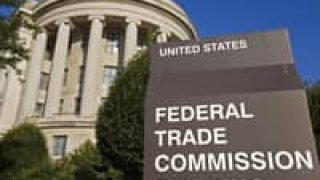
- Beam promised high interest rates through its mobile savings app, but a CNBC investigation last year found dozens of customers couldn't get their money returned.
- The Federal Trade Commission sued the firm in November, and now the two sides have reached a tentative settlement.
- A proposed class action suit against the San Francisco-based startup is still pending.
Beam — the mobile app that promised to pay as much as 7% interest on insured savings only to implode in a wave of customer complaints — is apparently on the verge of settling a lawsuit with the Federal Trade Commission, which had accused the startup of "unfair or deceptive acts."
A court filing late Monday revealed the tentative settlement with Beam and its founder, Yinan "Aaron" Du.
The agreement, which includes a permanent injunction and a monetary judgment, is still subject to approval by the FTC and by a federal magistrate in San Francisco. No other terms are disclosed in the filing.
A spokesperson for the FTC declined to comment on the filing. A spokesperson representing Beam and Du had no immediate comment.
Beam, which began in 2019, advertised itself as "the first mobile high-interest bank account designed for the 99%." Customers could deposit funds through the mobile app and earn interest well above that of a traditional bank account, which Beam said was possible because of its low overhead. Deposits would be fully insured by the FDIC, and customers would have "24/7 access" to their money.
But a CNBC investigation in October found dozens of complaints from customers who said they were unable to get their money out — in some cases for months. The customers said that Beam blamed everything from its vendors to the Covid-19 pandemic.
Money Report
The CNBC investigation revealed that Beam used a complex but legal arrangement to funnel the deposits back and forth through a network of banks. The banks paid fees to Beam for those deposits, which Beam could then pass on to its customers in the form of above-market interest payments.
Under the arrangement, customer deposits were indeed FDIC-insured if one of the banks failed. But the federal insurance did not cover a potential failure of Beam, which is not a bank.
After complaints began surfacing online last year that customers were having trouble getting their money returned, the vendors that Beam used to process those transactions moved to cut ties with the company and the entire operation seized up.
Beam eventually reached an agreement with the vendors to temporarily resume processing transactions in order to return customer funds. On Nov. 18, a Beam spokeswoman claimed to CNBC that the company had "processed 98% of customer funds," and was working to complete the remaining withdrawal requests.
That, however, was not good enough for the FTC, which filed suit that day in federal court in San Francisco seeking a permanent injunction barring Beam from future violations of the law.
"We want the court to tell Beam that it can't make these kinds of false promises to customers again," FTC Associate Director Malini Mithal told CNBC at the time.
In the latest filing, the parties ask the court to delay the lawsuit while FTC commissioners review the proposed "permanent injunction and monetary judgment."
The filing says that process typically takes "upwards of six weeks."
Still pending is a separate proposed class action suit by a Florida depositor on behalf of thousands of Beam customers seeking damages as well as unpaid interest. An initial conference in that case is scheduled for next week.
It is unclear whether Beam is still in business, and the spokesperson had no immediate comment when asked. The company's website remains active, but it now includes a link to a blog post with instructions from November on how customers can claim funds. The site still promotes Beam's high-interest savings accounts, promising "all growth."
Additional reporting by Dawn Giel, Jennifer Schlesinger and Scott Zamost.






